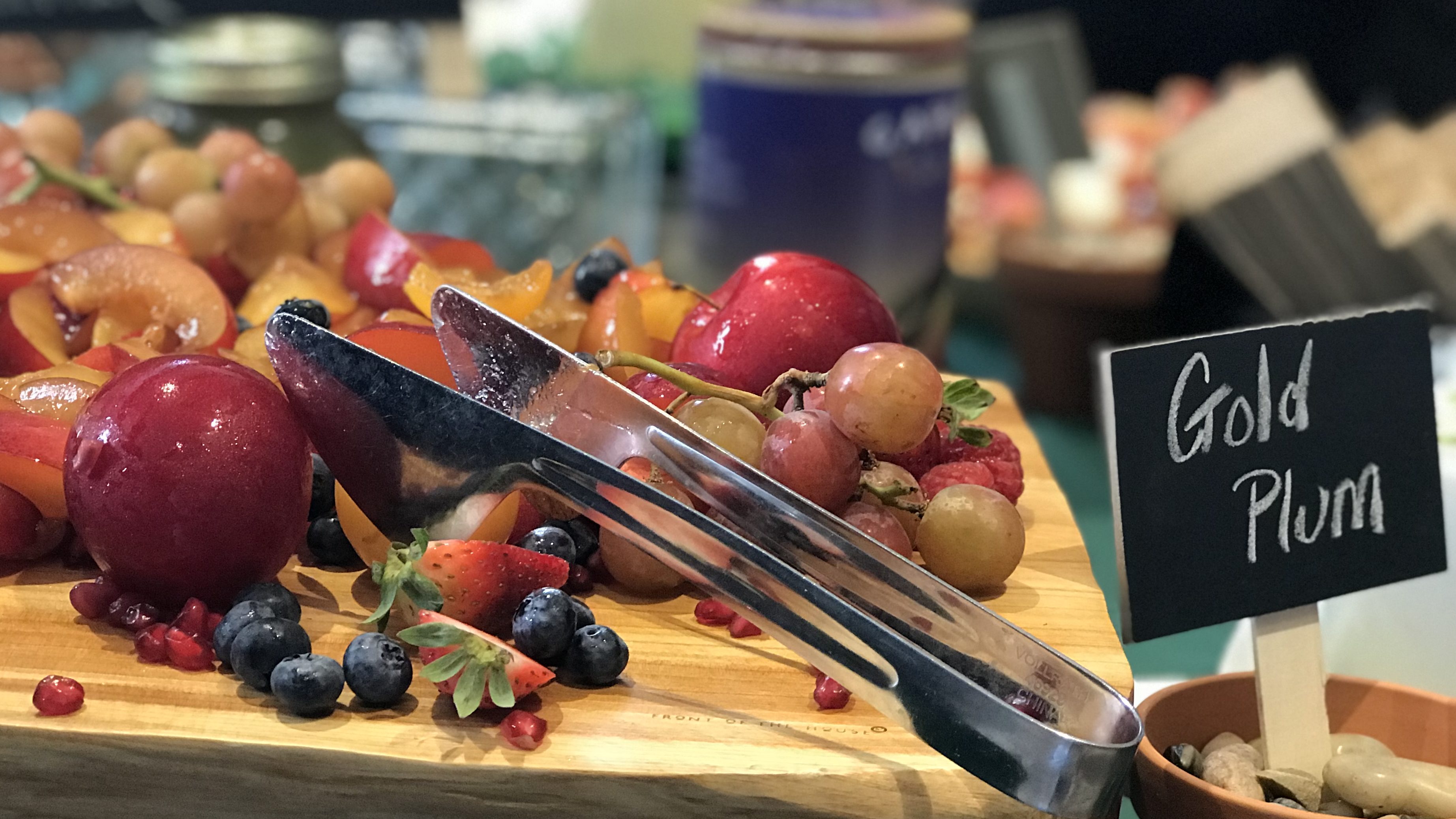Dining services is ever changing. With an effort to always be (ever) better, they strive to evolve more and more each year. Their most recent endeavour includes working with Harvest Table, a new division of Aramark that focuses on making authentic, personalized, and collaborative food.
Since the start of Fall 2018, improvements in Danforth and Douglass, two major dining halls on campus, are most obvious: napkin walls that invite feedback from students, increasing offers of different fresh fruits (plums, berries, peaches), the replacement of single-use coffee cups with mugs and so on. However, all the obvious changes are guided by the new underlying philosophies and standards for food in Dining Services.
This summer, Dining developed new sustainability standards and have since been applying them within all operations.
These new standards relate directly to Harvest Tables’ five culinary commitments, which are:
- Responsible Sourced
- Freshly Made
- Nutritionally Balanced
- Locally Produced
- Additive Free
Two standards categories are Sourcing Standards and Kitchen Standards, both of which following the five commitments in several aspects.
Here are three of the new standards Dining Services has adopted!
Animal Humane
Meat, dairy and egg sourcing all have restrictions on how animals have been treated. For example, chicken and turkey need to be certified human or be Gap 3-5 and will never contain antibiotics. Eggs need to be cage-free. Beef needs to be grass fed, non GMO, and humanely raised Gap 4 or above. Pork needs to be group housed. This ensures that the lives of the animals used are respected which is largely ignored in many places.
Local & Home-made
Dining Services always strives to provide better local experiences for students and faculty. The new standards require produce to be “at least 20% local, sustainable purchases, grown/processed within 150 miles; organic where possible”.
Bread and dairy are locally purchased, all dressings are self-made, salsas and sauces are made-in-house with all-natural ingredients and more surprisingly, much of the coffee served on campus is roasted locally. Adding all these up, approximately 62% of food and drinks on campus are sourced within New York State
Don’t miss out on our annual Local Foods Week starting October 22nd to celebrate all of our local partners!
Customer Insights.
Last but not least, “…menus need to be based on customer insights, health & wellness commitments, innovation, and community feedback.” By utilizing the Napkin Feedback Walls in Danforth and Douglass, you have a chance to voice your comments and concerns and have your voice heard by the Dining Halls managers. Let’s go green together!
Go green with Dining Team Green! Want more information on sustainability in dining? Follow us on Facebook, Instagram, and Twitter @ursustainibble. Contact us at urdiningteamgreen@gmail.com. We’d love to hear from you!
Photo provided by Can Wang
Guest Post Written by Can Wang, Class of 2020, Dining Team Green Sustainability Intern

